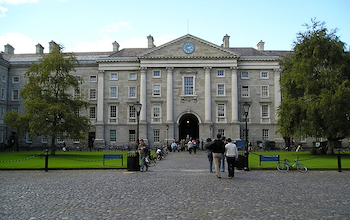
Visiting Dublin, Ireland, provides a unique experience brimming with centuries of Irish history, culture, and hospitality. For travelers hoping to take part in Dublin’s culture without feeling overwhelmed by a different set of customs, learning about the art of tipping is a great place to start.
Dublin’s locals have a certain expectation when it comes to tipping, and understanding these cultural norms can ensure a positive experience for both the diner and the wait staff. Knowing when, where, and how much to tip in Dublin restaurants will help travelers experience local Irish hospitality to the fullest, without fear of offending anyone.
This article will explore the etiquette for dining out in Dublin, and provide tips and suggestions for how to appropriately express gratitude for services. By understanding Irish customs and exploring the art of tipping, travelers to Dublin can experience the Irish hospitality and generosity firsthand.
When dining out at a restaurant, a 10 or 12% service charge is usually added to the bill by the restaurant. This service charge is designed to replace the service granted by the wait staff. If the service was good, patrons may leave an additional 3 to 5 euros per person on the table as a sign of gratitude. Leaving a tip is not mandatory in Dublin; however, it is a good idea to do so since the wait staff is usually largely dependent on tips for income.
Bartenders are usually not given a service charge like wait staff, so Irish bar-goers are expected to show their appreciation with a euro or two. A good rule of thumb is to tip €1 per drink ordered, or €2 for a bottle of wine or showing kindness and attention.
Tipping taxi drivers is not mandatory, but should they provide excellent service, a euro or two is highly appreciated. It is common to round up to the nearest euro when the fare is odd, such as 12.45 to 15 euros instead of 14.45.
In hotels, most of the time the staff is tipped by the host or the company for which the host works. This is especially true if the stay is for a long period, or the host is responsible for a large group. As a sign of appreciation, tips can be handed directly to the service providers. However, it is important to remember that hotel staff are usually not expecting to receive tips from short-term guests.
Tipping tour guides is not required if the cost of the tour was expensive, and does not necessarily need to be high. Generally, the amount tips should be based on the quality of the tour guide’s service. A good way to determine the amount to tip is to ask other people who attended the tour and compare their tips with yours.
Tipping hairdressers is not as common in Dublin as in other countries. It is important to remember that the cost of their services already include a service fee and taxes. Hairdressers and barbers will usually be grateful for a tip if the service received was above and beyond the expected quality. Anything from 5 to 10% of the final bill is appreciated.
If patrons feel that they have received a great service from any other service provider, it is considered polite to provide a tip as a sign of gratitude. A few euro is generally acceptable as a way to show appreciation without going overboard.
From this article, it can be seen that when in Dublin, tipping is a complicated subject. It is not mandatory at all locations, but in many situations it is expected and one should tip according to the quality of service they receive. While it is important to know the norms of tipping in a particular situation, people should also rely on their judgement and discretion when it comes to tipping. Therefore, it is important to be aware of the proper tipping etiquette in Dublin in order to show appreciation to service providers in a respectful way.